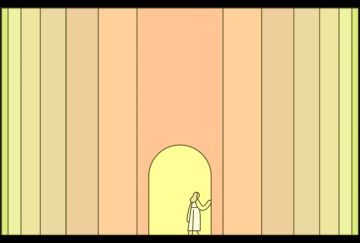Liel Leibovitz in Tablet:
 One of the most astonishing passages in the Talmud, a book chock-full of astonishing passages, gingerly asks the question at the core of every single human pursuit: What, precisely, is the meaning of life?
One of the most astonishing passages in the Talmud, a book chock-full of astonishing passages, gingerly asks the question at the core of every single human pursuit: What, precisely, is the meaning of life?
Rava, a wise Babylonian rabbi who was born around 280 CE and became one of the Talmud’s most cited superstars, had an answer. When we die, he taught his disciples, and arrive at the heavenly court for one last judgment, we’re asked just six simple questions: Were we honest in conducting our business? Did we set aside some time every day to study Torah? Did we have children? Were we truly looking forward to being redeemed? Did we exercise our brain in a clever fashion? And could we make proper deductions, understanding one thing when told another?
These questions aren’t meant to be pondered hypothetically, Rabbi Ari Berman argues in his moving new book, The Final Exam. They’re a blueprint for how all of us ought to live, but they’re especially poignant to educators, entrusted with guiding the young through the daunting task of figuring themselves out. And because Berman is the president of Yeshiva University, the only Jewish institution of higher learning in America combining both religious and secular studies, the challenge he’s facing is even grander. How, to paraphrase the university’s famous motto, should we go about teaching young Jews the virtues of both Torah and madda, both Jewish and universal values?
More here.
